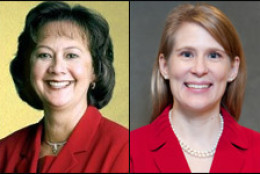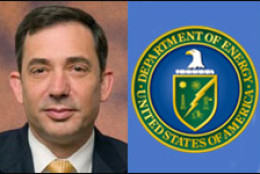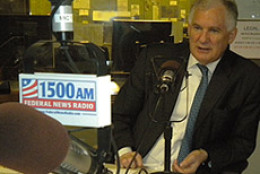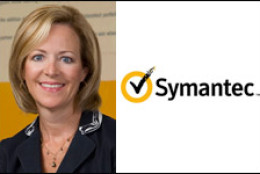Cybersecurity
-
Martin Libicki of Rand Corp talks about the 2013 Defense Authorization Bill. Dov Zakheim reviews what DoD Secretary-nominee Chuck Hagel can expect from Congress. Attorney Mark Schamel explains how the Defense Authorization Bill helps off-duty law enforcement agents. Erik Olson of the Pew Health Group discusses new food safety rules issued by the FDA. John Palguta of the Partnership for Public Service previews the SAMMIE nomination process. Katherine McFate discusses OMB Watch's name change.
January 08, 2013 -
Jimmy Christianson of the Associated General Contractors of America discusses government construction projects currently underway. Billy House of the National Journal talks about an article he wrote on the new Congress. Roger Waldron, president of the Coalition for Government Procurement, talks about GSA's Multiple Awards Schedule. Tim Solms of Microsoft discusses a new deal his company signed with DoD. Lisa Wolfe of Federal News Radio sheds light on a new website for federal job seekers. Brian Friel of Bloomberg Government talks about the new bill providing federal Sandy relief spending.
January 07, 2013 -
Certified financial planner talks about Thrift Savings Plan numbers for 2012. Todd Harrison of the Center for Strategic and Budgetary Assessments sheds light on DoD's recent shopping spree. Jim Treat of the Census Bureau discusses the Web-first approach to the American Community Survey. Attorney Sandy Hoe discusses a recent case in which a contractor sued the Air Force. Dr. Gerald Dillingham of the GAO talks about possible changes in leadership at the FAA.
January 04, 2013 -
On this week's Bloomberg Government Capital Impact show, analysts examine why Congress failed to pass comprehensive cybersecurity legislation last year, and the impact that money had on the 2012 election. January 3, 2012
January 03, 2013 -
John Kamensky from the IBM Center for The Business of Government talks about two decades of a results-oriented federal performance management system. Allan Holmes of Bloomberg Government discusses the top technology issues facing the government in 2013. Jeffrey Neal of ICF International sheds light on OPM's new guide to executive development. Jacque Simon of AFGE discusses legislation that could freeze federal pay to the end of the year.
January 03, 2013 -
Brian Friel of Bloomberg Government and Sterling Beard of The Hill newspaper talk about the new bill to delay sequestration and extend tax cuts. Alicia Cackley of the the Government Accountability Office discusses a new report on the Consumer Product Safety Commission. Cary Russell of the GAO outlines the logistical challenges of withdrawing from Afghanistan.
January 02, 2013 -
Karen Evans, partner at KE&T Partners LLC, and Julie Anderson, chief operating officer and managing director for the Civitas Group discuss what you can do to reduce the risk of cyber attacks at your agency. January 1, 2013
January 01, 2013 -
NORAD fills us in on how it's tracking Santa Claus on Christmas Eve. David Berteau of the Center for Strategic and International studies reviews the State Department's rough week. Ed Hardy of Brighthand.com talks about a good move by the maker of BlackBerry. Dr. Jacques Gansler of the University of Maryland discusses the acquisition challenges the government will be facing in the coming years.
December 21, 2012 -
Bob Brese, the agency's CIO, said cloud service and security operations center will help make the move to smartphones and tablet computers easier. December 20, 2012 (Encore presentation January 31, 2013)
December 20, 2012 -
The blanket purchase agreement lists 15 tools and 11 service areas that DHS wants vendors to provide to improve agency cybersecurity.
December 19, 2012 -
William Lynn, the former deputy Defense secretary played a significant role in improving DoD's cyber posture. Now, the CEO of defense contractor DRS Technologies, Lynn joined Pentagon Solutions with Francis Rose for a deep-dive discussion into the Pentagon's cyber readiness and the changing nature of the cyber threats it faces.
December 19, 2012 -
Defense analyst Jim McAleese reviews the Defense Authorization Bill agreed on by both the Senate and the House yesterday. OPM Director John Berry says proposed rules to implement phased retirement are on the fast track. Rep. John Sarbanes (D-Md.) discusses changes that will make it easier for feds to telework. Rep. Gerry Connolly (D-Va.) talks about benefits that will help retain federal employees. Vivian Reifberg of McKinsey & Co. talks about why the current administrative transition is so important. Alex Bolton of The Hill discusses the fiscal cliff negotiations.
December 19, 2012 -
Gigi Schumm, vice president and general manager Public Sector of Symantec, talks about computer security. December 18, 2012
December 18, 2012 -
Attorney Lynne Bernabei examines a recent ruling that allows feds to file some MSPB appeals in district courts. GAO's Michele Mackin describes why more than 40 contracts worth more than $20 million each were awarded without meeting new guidelines. Former White House official Dan Chenok discusses the highs and lows of the E-Government Act. Melanie Ann Pustay of the Justice Department talks about how agencies report their Freedom of Information Act request fulfillment.
December 17, 2012 -
Khem Sharma discusses the Small Business Administration's plans to raise size standards for companies in two groups. Dr. Murray Lumpkin of the FDA talks about the close coordination between two countries. Stuart Delery explains how the Justice Department recovered $5 billion under the False Claims Act last year.
December 14, 2012







